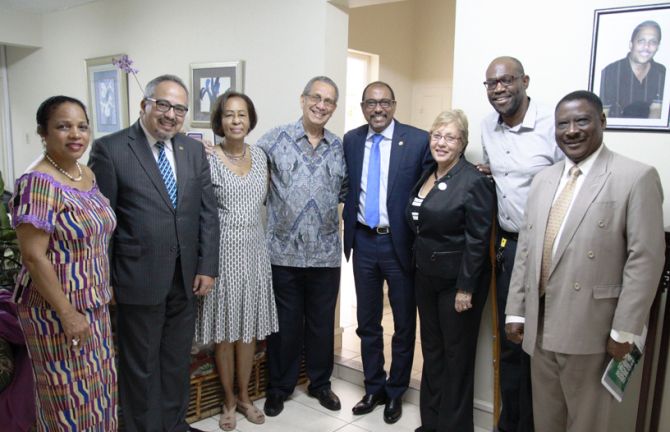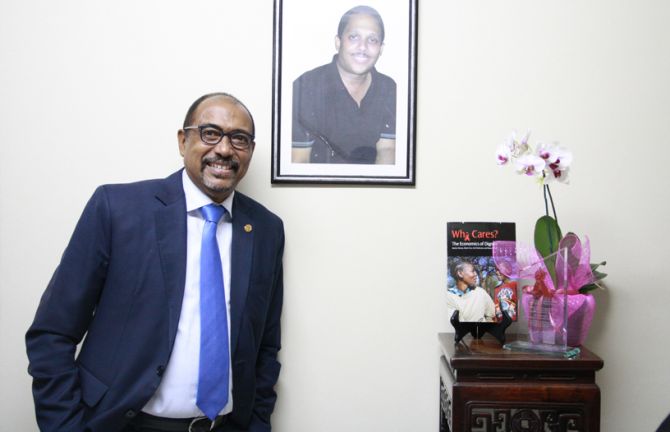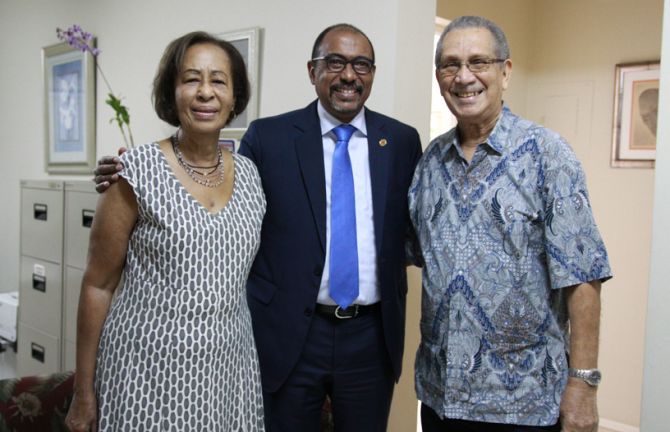



Feature Story
Robert Carr’s legacy of advocating for marginalized and vulnerable groups continues
23 November 2015
23 November 2015 23 November 2015The global AIDS response requires emphasis on the people not reached by essential services, the places that are hardest hit and the people who bear the brunt of social inequality. Robert Carr’s entire professional life as a social worker, academic, advocate and activist was dedicated to pointing the Caribbean, and the world, in that direction.
On 10 November, UNAIDS Executive Director Michel Sidibé visited the Kingston, Jamaica, offices of the Caribbean Vulnerable Communities Coalition—founded by Mr Carr in 2004—where he paid his respects to Mr Carr, who died in 2011, and recommitted to his legacy. Ending AIDS as a public health threat would not happen without concrete investments in addressing social exclusion and promoting human rights, Mr Sidibé said.
Mr Sidibé said, “I will always hold dear the memory of Robert Carr, because he helped us understand we will never end the AIDS epidemic if we don’t deal with people who are excluded.”
Mr Carr was a past Co-chair of both the Global Forum on MSM & HIV and the Global Coalition on Women and AIDS. He was at various times Policy and Advocacy Director of the International Council of AIDS Service Organizations and a member of both the UNAIDS Reference Group on HIV and Human Rights and the nongovernmental organization delegation to the UNAIDS Programme Coordinating Board.
In the Caribbean he mobilized partners around the goal of addressing the deep-seated prejudices that left people excluded and often criminalized, pushing them away from HIV services.
Carolyn Gomes, Chairperson of the Caribbean Vulnerable Communities Coalition, said, “Robert’s vision is beginning to take shape.” She pointed to several aspects of the organization’s work, including helping to strengthen the Caribbean Sex Worker Coalition, collaborating with the Caribbean Forum for Liberation and Acceptance of Genders and Sexualities and supporting burgeoning transgender groups in different countries.
“We try to continue Robert’s special legacy, his subversiveness”, Ms Gomes said. “He spoke truth to power but also had a genuine heart and insistence that voices be heard.”
During the visit Mr Sidibé paid tribute to Mr Carr’s parents, Peter and June Carr. He was presented with Who cares? The economics of dignity, a book Mr Carr co-authored that calls for increased emphasis on people who provide care and support to people living with HIV.
Mr Sidibé reaffirmed his commitment to the Robert Carr Civil Society Networks Fund, which seeks to strengthen international collaboration and provide funding to civil society networks assisting inadequately served populations. Community organizations, he emphasized, are critical to reaching the Fast-Track Targets.



